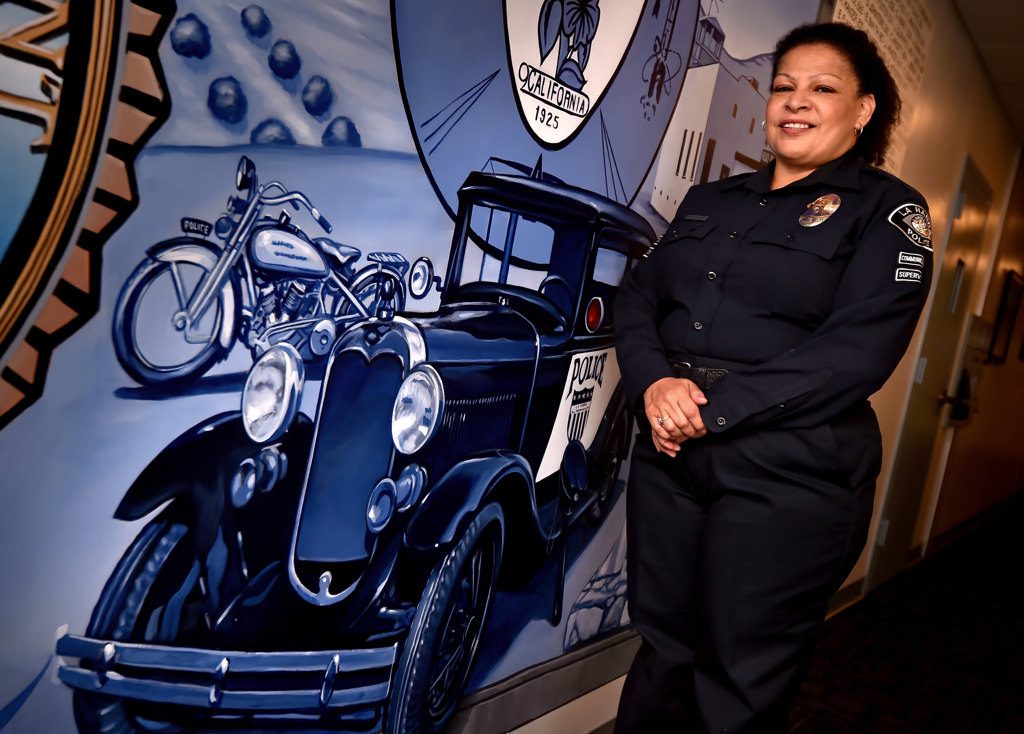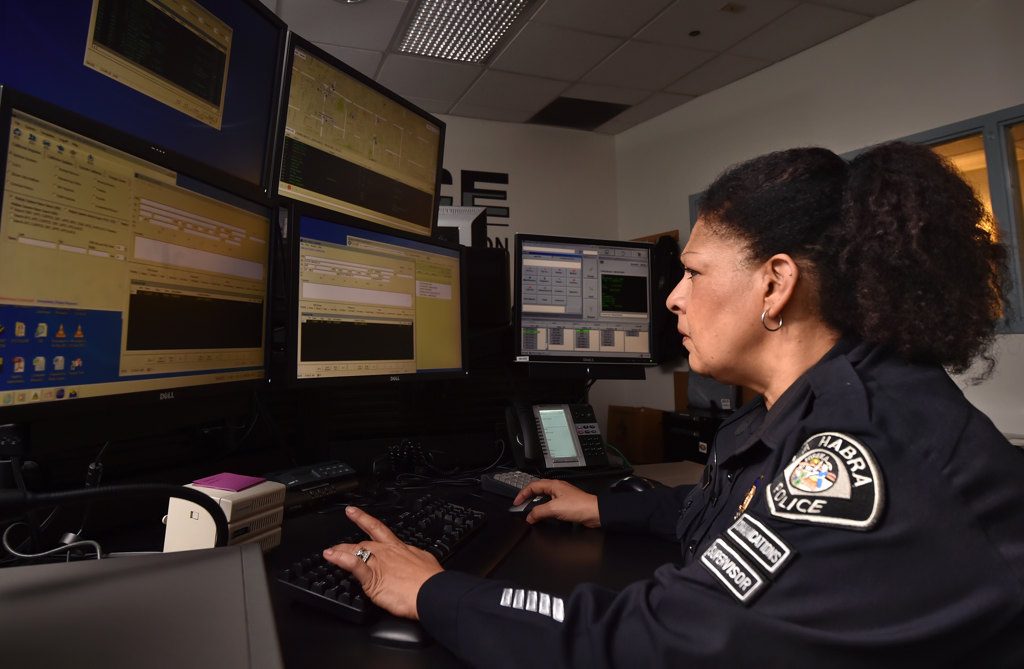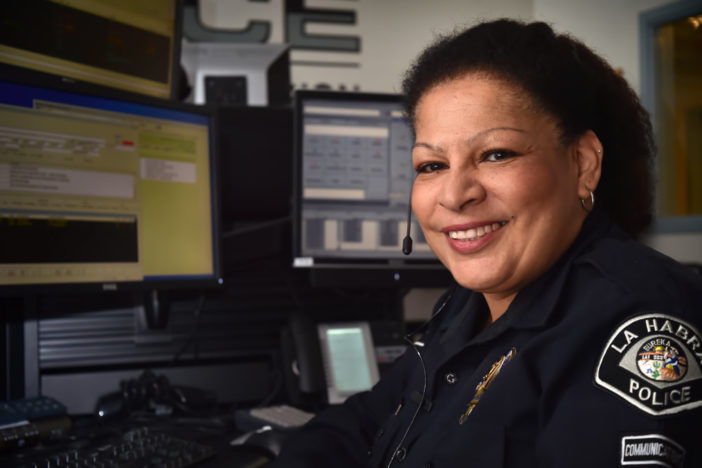Her first night as a dispatcher was intimidating, to say the least.
“It’s a lot of information,” La Habra Police Department Communications Supervisor Cynthia Gulley recalled. “It was a huge learning curve. It was pretty scary. You learn a new language. You have to learn the city. You have to learn the 9-1-1 telephone system… Most importantly, you have to multi-task. You have calls for service that are prioritized higher than others.”
She remembered watching some of the veteran dispatchers walk to their desks with their plates of food to eat while they worked. And she wondered how they could eat at a time like that – “This is so scary.”

La Habra PD Communications Supervisor Cynthia Gulley, stands in front of her favorite part of LHPD’s new mural.
Photo by Steven Georges/Behind the Badge OC
That was 27 years ago when she first became a dispatcher for La Habra PD and she can’t believe it’s gone by so quickly.
“That became me – the dispatcher that I used to watch– all of the sudden, I became that person,” she said. “I have loved every single moment of it.”
Over those years, she worked graveyard as a dispatcher for nearly 20 years and also served on North County SWAT as a tactical dispatcher for 12 years. And now, she’s hanging up the receiver for good as she retires after 35 total years of service with the city of La Habra (she started out at La Habra City Hall in Employment and Training). But she’ll be starting another career for the Orange County Superior Court. Her final day with the LHPD is April 7, and she begins her new job April 14.
“I’m going to miss it,” she said.
She has many memories – both good and bad – of her time in dispatch. The tragedy of young Officer Michael Osornio’s death stands out – when his car was struck by a drunk driver while the officer was on duty in 1994. And there were many other sad calls.
“Things stick with us,” she said. “There’s a lot of things that stick with me … things that pertain to children … you just do what you have to do. You go into work mode to help that person that’s in need at that time. Then you go to the next one. But it’s very rewarding.”
But there’s the funny stories too. Like when she had a 3-year-old boy call in about his broken TV.
“‘Hello 911, my TV is broken,’” he’d told her.
Gulley asked if he was home alone and the boy answered no, that his father was there. She asked the boy to tell his dad that their TV was broken.
“I heard his dad say, ‘What?’” when the boy told his dad he’d called 911.
Then there was the call she received from California Highway Patrol when she worked as both a police and fire dispatcher. A woman called about her husband not breathing. Gulley dispatched the fire department. When the paramedics arrived, the woman asked to cancel the call. She said she couldn’t remember where her husband was.
“It turned out that her husband had previously passed away,” she said, adding that the call made her think about ghostly possibilities.
Gulley says goodbye to the dispatch team just the week before National Public Safety Telecommunicators Week, April 9-15, but not before she recognizes her team of seven full-time and six part-time dispatchers for their hard work.
“I will make sure that my crew gets recognized like they always do,” she said.
She refers to the team as “public safety dispatchers” rather than police dispatchers because they get calls from residents for all potential dangers – from green water in the gutter to vicious animals.
“We’re in the public safety business,” she said.

Cynthia Gulley, communications supervisor for the La Habra PD Dispatch center, takes a 911 call.
Photo by Steven Georges/Behind the Badge OC
Though she was promoted to supervisor in 2010, she has still continued to assist as a dispatcher as needed. Because she’s also a Spanish speaker, she would assist on those calls.
And the day before her last workday, she will be working the nightshift, after her regular dayshift, to fill in for someone on vacation.
“That’s going to be the last time I’ll probably go on the air,” she said. “I’m really going to miss this.”
 Behind the Badge
Behind the Badge



